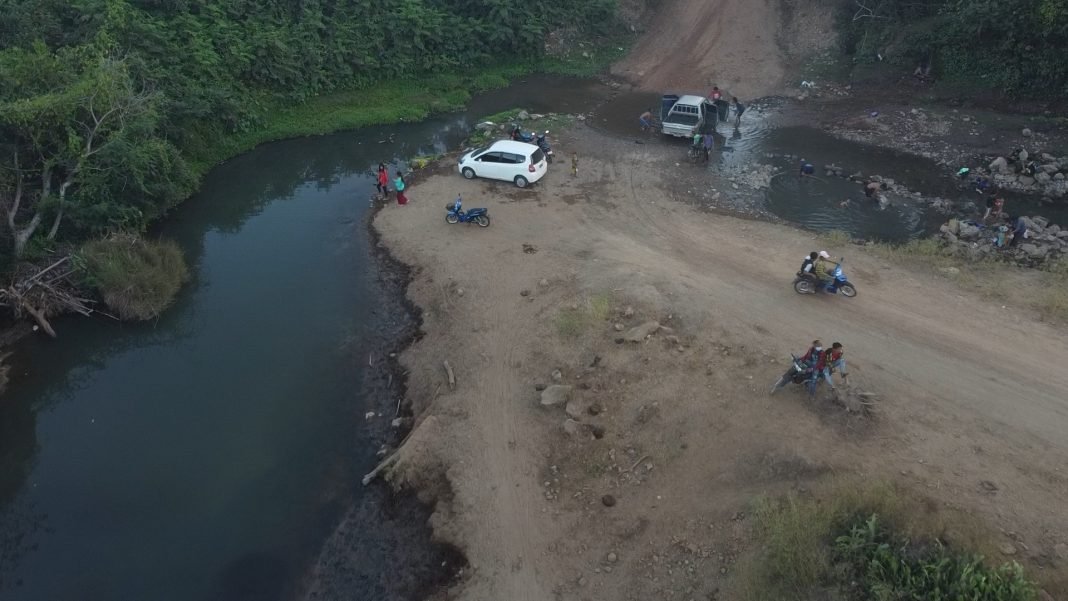Mi Myar & Anthony
The Karenni National Progressive Party (KNPP) says the government’s plans to start tourism along the Salween River will not be conducive to regional security.
Shardaw Township, where the project is to be developed, is still designated as a black zone (war conflict zone) by the government, and the KNPP has been facing military clashes in May 2020 as well, and the area is still unsettled, according to KNPP Township Administrator Meh Reh.
“The government is saying that it is a black area while we say it our restricted or controlled area, so it will be a little fatigue. And the main fatigue will be, for example, when our movement and the Burmese army movement interact with each other, there will be a lot of problems. It has happened to us in the last five months. If our side does not control it, there will be more problems. We tried to be positive and avoided it. It happens often in this area, but we are patient. As a tourism industry, I think it will be difficult to be safe.”
U Min Zaw Tun, a state in-charge of the Department of Hotels and Tourism, said that since last month, a project has been planned to visit places on the Salween River and Ywarthit in Shardaw Township to attract domestic and foreign tourists.
“Local tourism committee members and the local travel agencies (DMOs), and the process teams work together to identify trip destinations. It is not only in Loikaw in Kayah State but also in Deemawso, Hpruso, Hpa-Saung, Bawlakhae, Ywarthit, Shardaw, and Mese. We have identified that all of these must have tourism destination, so now we do a field visit and observe a waterfall in Ywarthit, monasteries that are more than 150 years old, and a hot spring and the Salween River in Shardaw township.
They have planned to implement tourism destinations in Kayah State such as a visit of the traditional way of life of the Kayah people in Shardaw, the natural hot springs, pilgrimage to pagodas, and motor boat trips along the Salween River.
The KNPP’s deputy secretary-2, Khu Daniel, said the project had been planned under the previous Union Solidarity and Development Party (USDP) government and had not been approved since then.
“It has not been allowed yet. They have been asking for permission since the last government term. They demand it. But we, as KNPP, do not allow it. It will not be allowed yet.”
U Aung Kyaw Thu, Director of the Department of Hotels and Tourism, said the permit would be reviewed by the Ministry of Home Affairs and asked how many people could travel within Shardaw Township and Ywarthit sub-township.
It is said relevant ethnic armed groups will coordinate with the state government to implement such projects.
“Yes, we have. Then we will coordinate with them. Only then can we coordinate with the state government and all their organizations,” U Aung Kyaw Thu said.
Locals do not yet know how to develop tourism in Shardaw. In the current situation, some also say, it is not appropriate to do business. Maw Mae Moe, a resident of Shardaw Township, responded the security was not yet secure.
“Why there is no security yet is because there is only a ceasefire here. At a time when there is no peace, we do not know when or what will happen, so we are not safe in such cases.”
Along the Salween River in Kayah State, where the government will now build tourism, there are Burmese army outposts and camps. In Ywarthit, the Border Guard Force (BGF) and People’s Militia Headquarters, and in Pha-Saung Township, the BGF and People’s Militia outposts are located along the Salween River respectively.
It is said the government side has the plan to implement tourism destinations such as a visit of the traditional way of life of the Kayah people in Shardaw, the natural hot springs, pilgrimage to pagodas, and motorboat trips along the Salween River.
From January to the end of November 2019, a total of 67,493 domestic tourists and 11,459 foreign tourists visited Kayah State last year.
During that same year, the Department of Hotels and Tourism received more than 1,600 million kyats in revenue from domestic tourists and more than $ 70,000 from foreign visitors, according to the Department of Hotels and Tourism.


